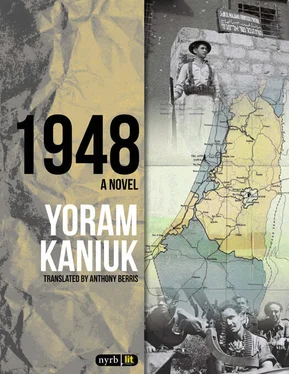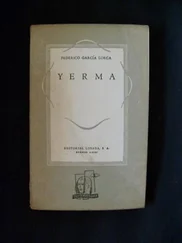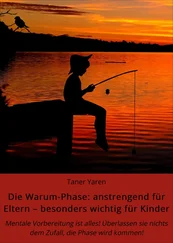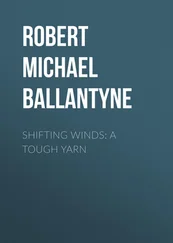One day, many years later, walking down Allenby Street and minding my own business, I passed what had once been the Allenby Cinema, and suddenly a silver-haired, very thin man stopped in front of me, with a little girl in his arms, his granddaughter perhaps, so pretty, delicate, frightened by the strange man I was for her in the middle of a busy street, and behind him was his wife, and he stared at me in astonishment and I’m sure I recognized him, but from where? And he said, You’re Yoram, and I said, Yes, and he said, Don’t you remember me, and burst out laughing, and I laughed with him and suddenly I recognized him, his eyes had remained inside me, deep behind all the onion skins with which we all encase ourselves. We exchanged a few words, I said something to him, he was moved, I was moved, and then there were no more words. His life and mine had not stayed the same. We had a memory from one day aboard a ship, when he was a young, scarred, and angry boy who had sold his dead parents’ diamonds to the SS, and now he’s an adult introducing me to his wife and daughter or granddaughter, I don’t remember. We remained silent for a few moments and went our separate ways because we didn’t have anything to say to each other, the memories exchanged glances and sentences, but we didn’t have the words to talk about them.
In 1946, when I was still at the Tichon Hadash High School, I went to Frishman Beach between mathematics and history lessons to think by the sea, which always lubricated the cogs of my brain. All that time, deeply imprinted in me was the sight of the man who came to see my father, with his downtrodden-clown expression, and the blood and final breaths of the Arab who pleaded for his life, and whose soul I’d actually seen departing, and I thought that perhaps in the right clothes I’d look like him.
I sat there smoking, an exhilarating breeze was blowing and clean deep air entered me. From the Keite Dan Hotel a tall, charming lady emerged wearing a silk dress and a wide-brimmed straw hat, and smiled at me. I smiled back. She said she knows my uncle Yosef, the handsomest man in the country, and said that I should be cautious of beauty, beauty is something fatal, people are frightened of beauty, they want to take revenge on it. She was very beautiful, a long noble face like in a Botticelli painting. I took a Players from the packet of ten I’d bought earlier at a kiosk on Ben-Yehuda Street, and the woman, who smelled of face powder and a pleasing eau de cologne, bent down to me — I came up to her bosom — lit my cigarette with a gold-plated lighter, looked at me, and said, You really are a lovely boy just as your uncle Yosef was, you’ve got thick hair, and take care. And then a black taxi pulled up whose green number plate bore three digits, 333—I liked the fact that it was 333—and with a floating pirouette the thin and magnificent giantess got into the taxi and disappeared forever. I carried on smoking, facing the waves on Frishman Beach, and thought in the second person. Yoram, what exactly are you doing here? What blood is lying there dead with my father, and both must be avenged?
In July the illegal immigrant ship Exodus sailed along the coast and on the Haganah* radio we heard the commander speak, and the country was abuzz with rumors. The ship’s passengers were deported back to Germany, and then United Nations delegates called for the establishment of two states in Palestine, and the land rejoiced and was happy. The trees rejoiced. The electric poles rejoiced. The tin baths on the roof rejoiced. And when November came everyone stood outdoors or crowded around those who owned a radio and laughed, happier than they’d ever been or would ever be again, and they counted the votes from the United Nations anxiously, excitedly, aggressively, pleadingly, believingly. Through the open windows, in the cafés, the cobblers’ shops, the bakeries — everyone was shouting the count as if it were a prayer. Thousands of people chanted together, One, two, three, four … and then came the trumpet blast. Two thousand years of exile and fear and humiliation had come to an end. We danced in the streets. On the corner of Dizengoff and Frishman there was a vacant lot facing the area on which the Cameri Theatre would later be built, and people brought wood for a bonfire and the café owners brought drinks and we danced all night long, and first thing the next morning the war broke out.
Shooting at intercity transport began. There were already dead and wounded. The Palmach reserve units were recalled to service, and one morning on the corner of Ruppin Street and Keren Hakayemet Boulevard I overheard a conversation between two older guys. One of them said, I told my father this morning that I’d gone back to the Palmach, and he said that when you want to piss, your belly wants to, your eyes want to, your hands want to, but in the end what pisses is the putz.
I got out of there and that night went to see Tony, my school principal, whose life partner, Gustav, was a big expert on Fichte and Schelling, but here he swept Dizengoff Street with a big broom, and Tony would run after him with sandwiches so he’d eat, and in the meantime he taught me philosophy. Tony saw me coming, but her attention was fixed on Gustav and she got up onto the sidewalk and stood facing him, and she came up to his belt that was held in place by a nail he’d found in the road, and the chicken mayonnaise sandwich flew from her hand, and a dog barked, and she called Gustav liebchen , and that gentle giant bent and kissed her, and how much beauty there was in that kiss. And suddenly the image of the man who came to see my father came back to me. What was it in the man’s eyes then? Contempt or envy? Afterward they’d shouted in German. I was tired. I fell asleep walking and was unable to speak. Tony walked me to the corner of Keren Hakayemet and said, Go and sleep now, come back tomorrow only at nine, sleep, little one.
I returned the next day to Tony the principal, the most wonderful woman I’d ever met, she was standing facing the sea by a thick-branched tree in the yard of the school she had founded, and I told her I was joining the Palyam. She was angry and asked me to wait. She said I should wait until I had a matriculation certificate. I explained something. She was sad. I could see that she understood me, but still she didn’t agree.
Yochanan Krasner’s father, who was an important functionary in the Haganah and rode a Harley-Davidson motorcycle, told me that if I really wanted to enlist, I should go secretly to a small button shop on Dizengoff Street near Nordau Boulevard. I went there and said that the man with the Harley-Davidson had sent me, and the man in the shop said that he knows a man like that, his son’s called Yaki, and he knows him well, and I told him that his son’s name is Yochanan, and then his manner softened and he sent me to Ben-Yehuda Street near Vilna Street, to a shop that also sold buttons, and there a redheaded young man told me to come back the next day. I went back. He said, Listen kid, in the building you live in, there’s an office on the third floor. I was surprised. There were two apartments there — one belonged to Mrs. Kramsky and the other to Oded Nachmani, who worked in the Histadrut*.
I walked down the stairs from my parents’ apartment and knocked on the door. A guy opened it and asked for the password, I said, You know me, I live upstairs, and he slammed the door. I knocked again, he opened the door, and I asked, Does the man from the Histadrut live here? The guy said, Who’s asking, and I said, I think the password’s “buttons.” He asked, What buttons? I said, Round ones, and he said, Go to Nachalat Binyamin Street, next to Schwarz’s fabric shop, and ring twice, somebody will shout something and you sing the song “You have to ring twice, you have to wait a moment,” and do whatever the person who opens the door tells you.
Читать дальше












